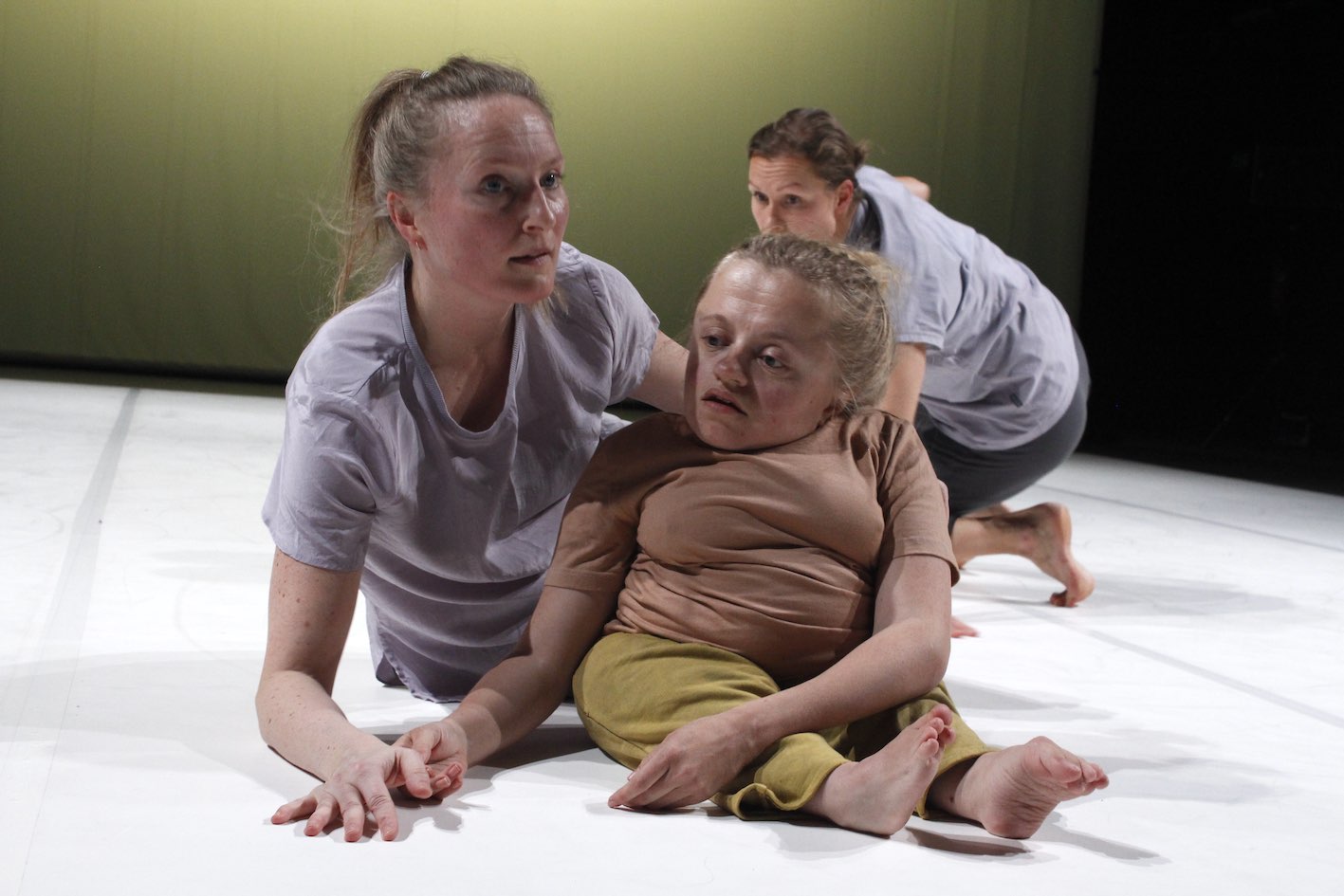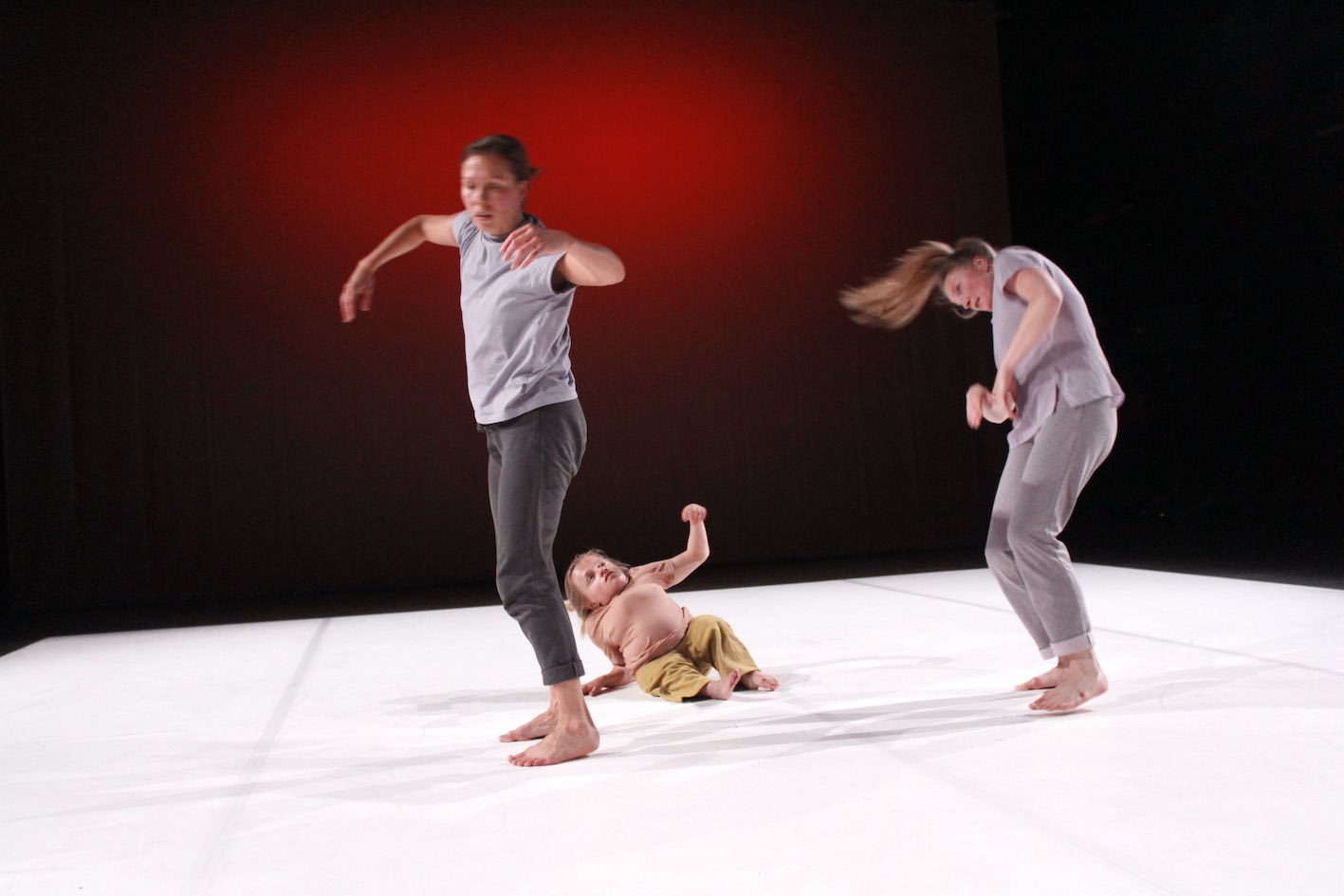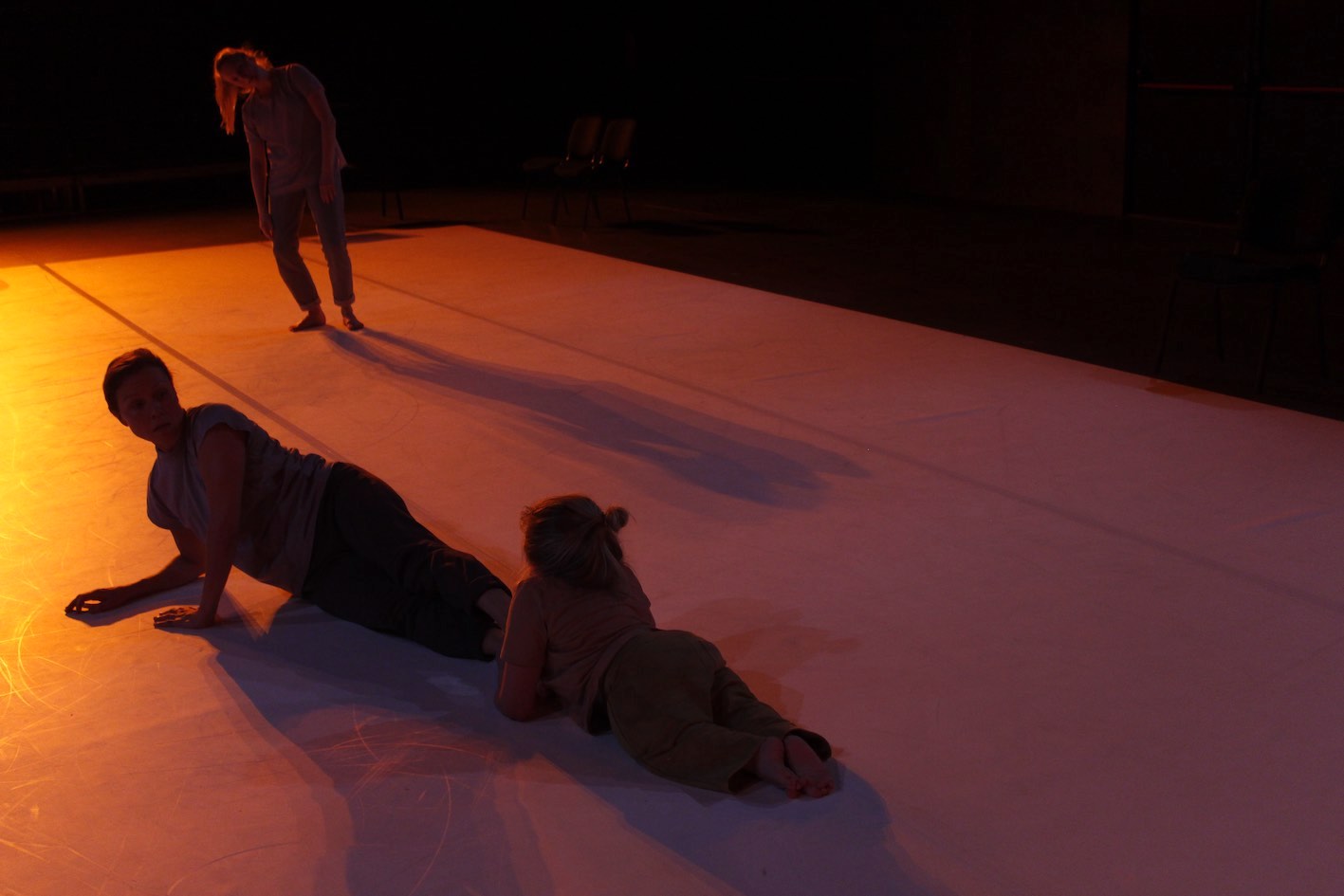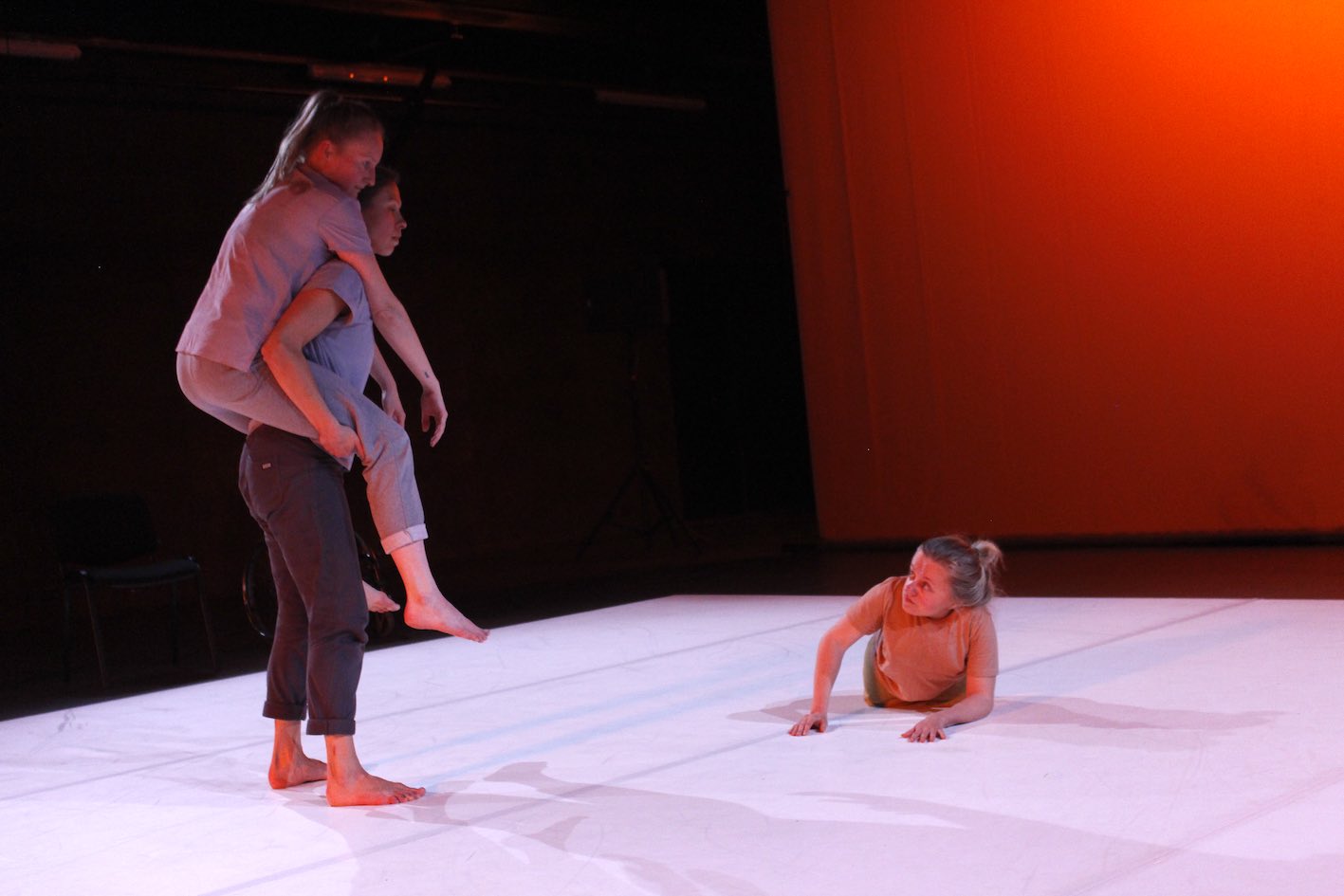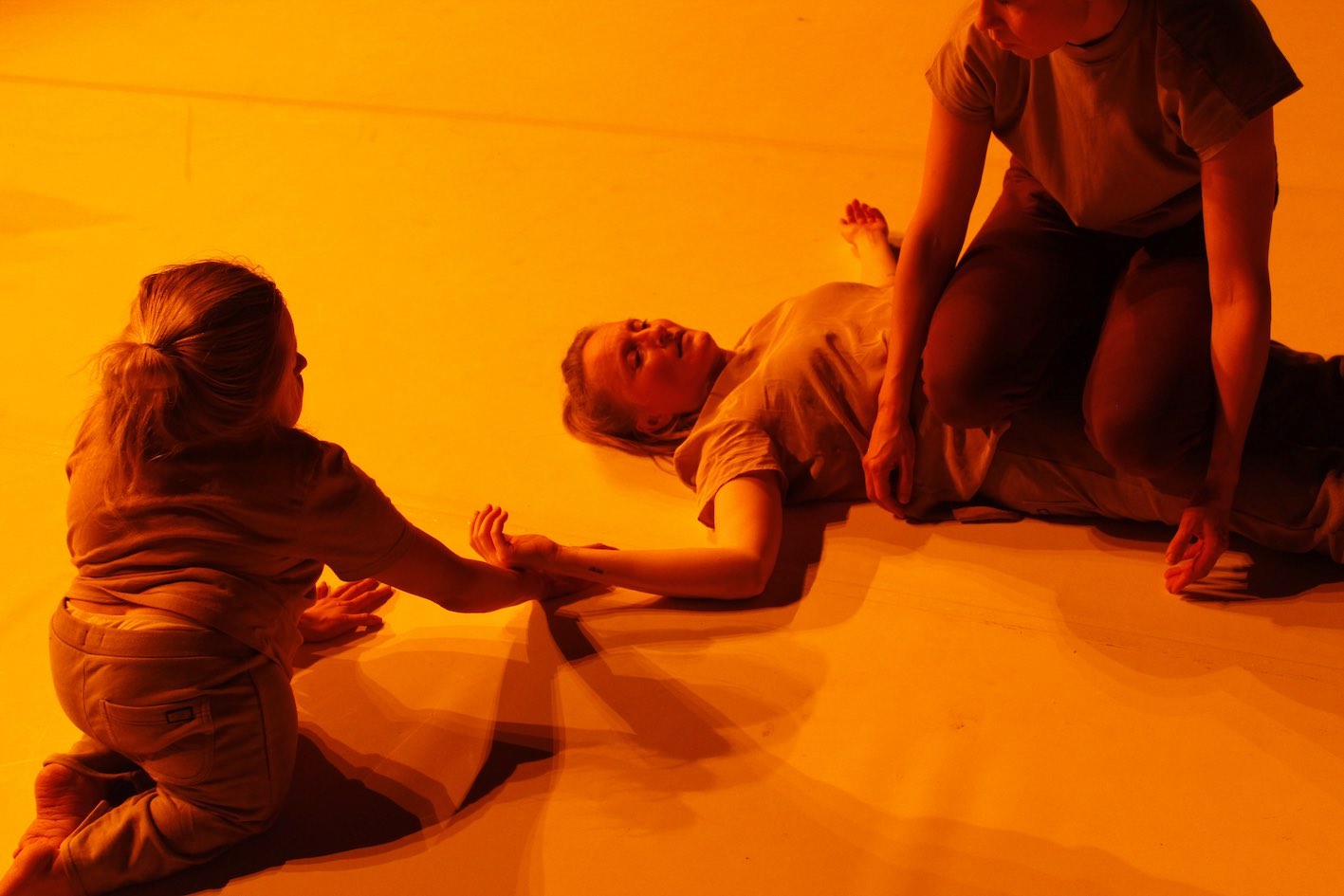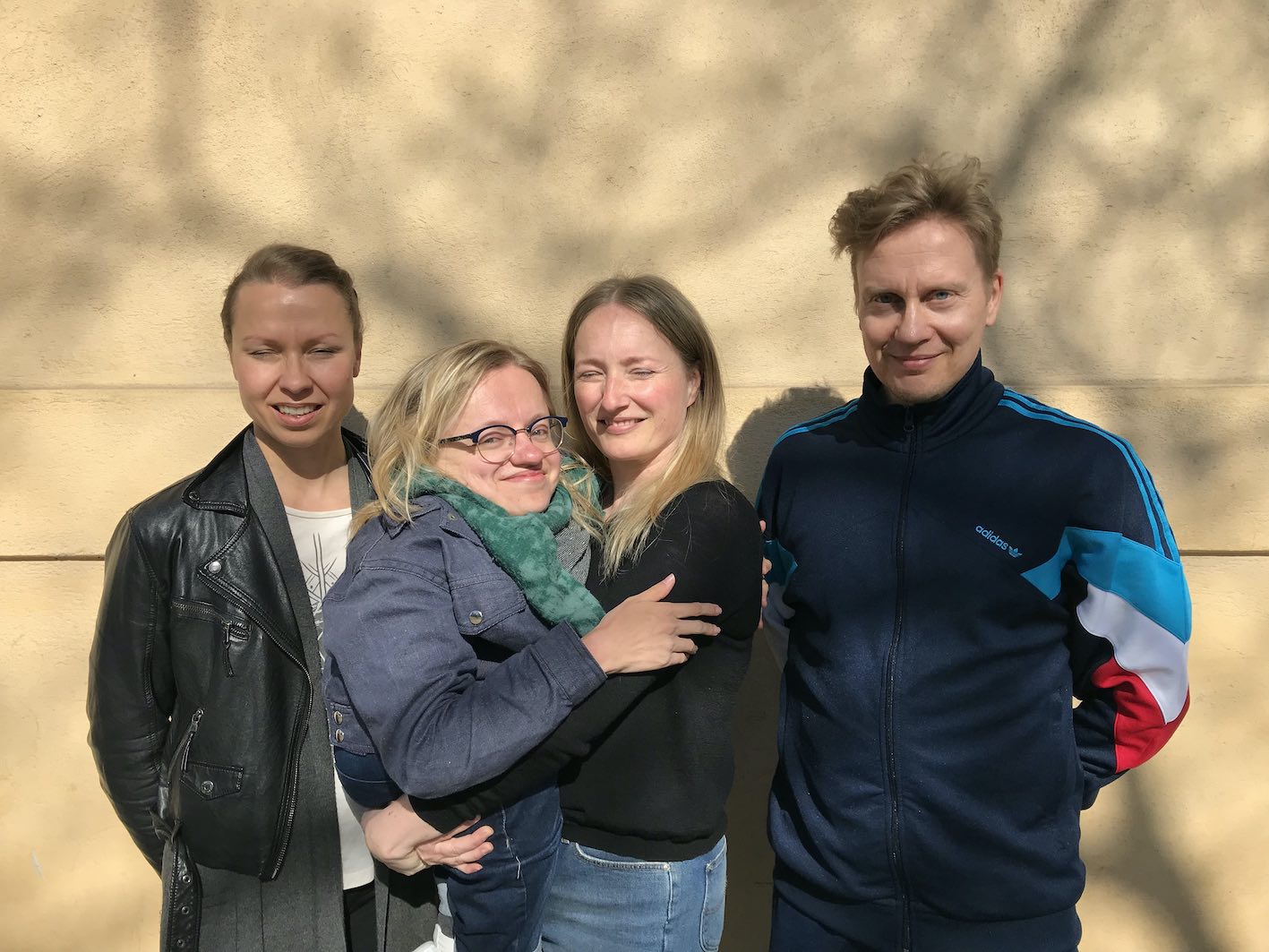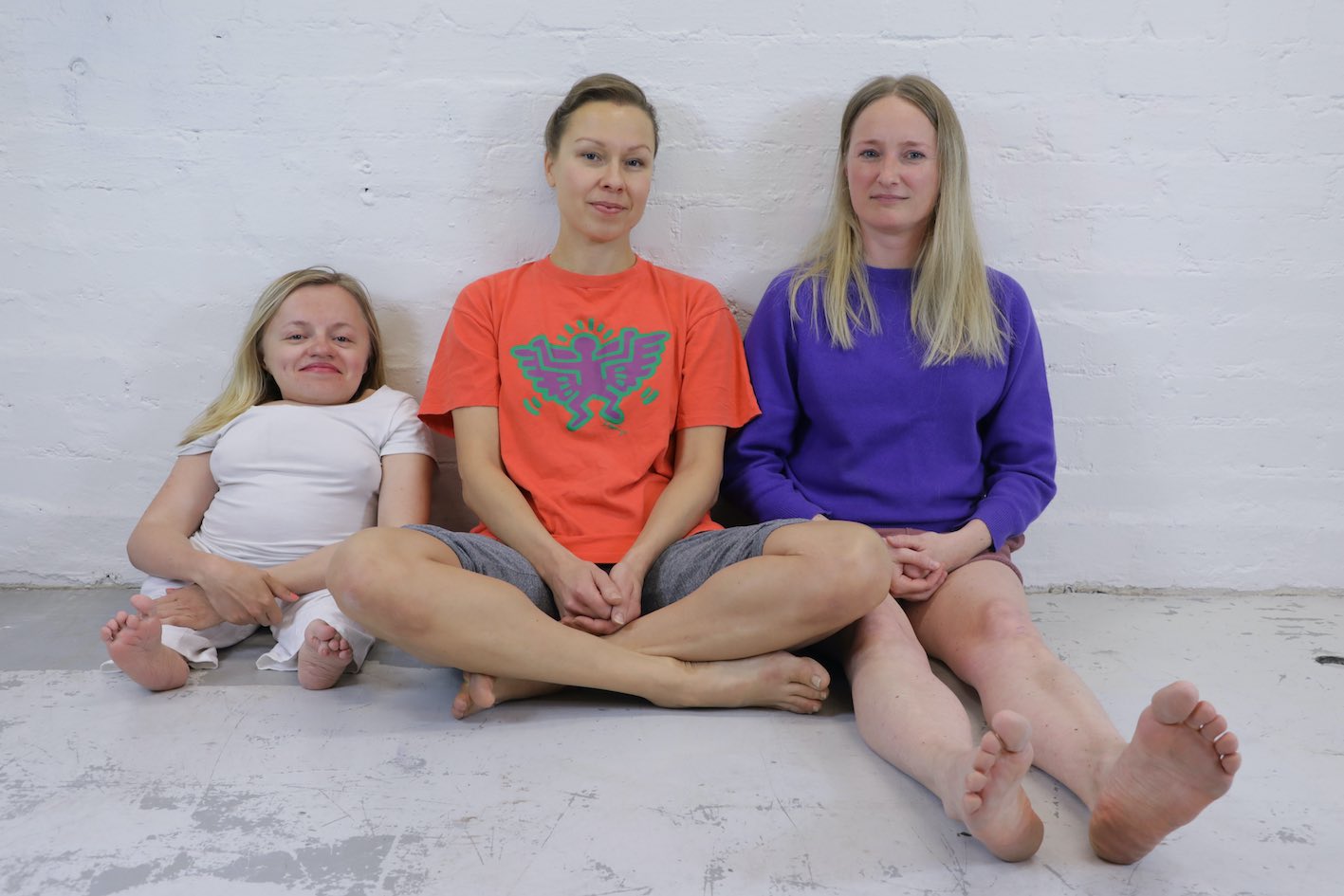|
ÉLIANE
Language: Finnish, with English subtitles
Duration: 80 minutes.
“Sounds like my old refrigerator but helps me to contemplate
about life and to sleep.”
(An anonymous comment on internet about Éliane Radigue's
music.)
ÉLIANE is a dance piece based on composer Éliane
Radigue's (b.1932) music and philosophy. The work is a
joint effort of Teemu
Mäki and Maija
Nurmio. The dancers in it are Nurmio, Jonna
Eiskonen and Maija
Karhunen. Radigue's composition I’Île Re-sonante
(2000) and Teemu Mäki's text All Is Music are heard
in the performance.
Radigue is a pioneer of contemporary classical electronic
music. She is also a Buddhist and while her music is not
literally religious, it can be heard as a meditation on the
main themes of certain types of Buddhist thinking: how to
deal with suffering? How to accept and enjoy one's place in
the cycle of life and death? How to learn to respect all
beings and appreciate all modes of being?
The premiere of our dance piece was in Vaba
Lava Theater, Tallinn, January 2019, and the Finnish
premiere in Mad
House Helsinki, right after that.
The first part of the performance is a 'collective
monologue' or speaking choir, with video. It's a text
written by Mäki, ALL IS MUSIC, performed by Henni
Kiri, Teemu Mäki and Olivia Pohjola. The second part is a
combination of dance and Radigue's music.
I’Île Re-sonante is a a composition that Radigue
created in her studio with ARP 2500 synthesiser and a Serge
Modulator. It's her last electronic work. She has then
switched into composing only for acoustic instruments.
CREDITS
Direction:
TEEMU MÄKI
& MAIJA NURMIO
Choreography:
MAIJA NURMIO
Dance:
JONNA
EISKONEN, MAIJA KARHUNEN, MAIJA NURMIO
Music:
ÉLIANE RADIGUE
Text & video:
TEEMU MÄKI
Voices:
HENNI KIRI,
TEEMU MÄKI, OLIVIA POHJOLA
Lights:
OLIVIA POHJOLA
Production:
HENNI KIRI
FUNDING
Kone
Foundation
The
Finnish Cultural Foundation
Arts
Promotion Centre Finland / National Council for Performing
Arts
Soome
Instituut, TelepART for the Baltic Region
PERFORMANCE HISTORY
& FORTHCOMING GIGS
Premiere at Vaba
Lava Tallinn 14.1.2020 (19:00)
another
performance at Vaba Lava: 15.1.2020 (19:00)
Performances
at Mad
House Helsinki:
18.1.2020 (16:00)
22.1.2020
(18:00)
23.1.2020
(18:00)
25.1.2020
(14:00)
WHY
RADIGUE?
1.
I enjoy her music and my experience is that it fits
especially well with dancerly work, because her music
is so physical and slow. It doesn't turn the dancer into a
marionette, but instead intensifies the bodily experience
both in dancer and in the audience.
Probably most common first impression of her music is that
"there is little going on" and it's static and resembles
random noise. However, for a curious and attentive listener
it sounds right away also exciting, because it's so
multi-layered, i.e. consists of many overlapping sound
events.
When the listener has the motivation to go deeper into this
music, it will change the listener's experience of existence
for the duration of the music and also afterwards. I think
Radigue's music encourages us to listen so curiously and
patiently that the diversity of the world, with its manifold
nuances, really opens to us.
2.
I'm interested in the philosophical and political
potential of Radigue's music. I think her music is
politically & philosophically radical because of the
following reasons.
Radigue's music can make us more alert, it can help us to
sense and pay attention to the diversity and vibrancy of the
world. Radigue's compositions are long and slow and may at
first sound like mere random noise, but if the listener has
patience and concentrates fully, it can be quite easy to
find this music exciting and rich with nuance: "Sounds are
miraculous, even every bit of noise has musical potential!
Why didn't I notice this before?" By listening to Radigue's
music the listener can learn to observe one's surroundings
and oneself with greater sensitivity and appreciation not
only during the listening session, but in life in general.
If all goes well, this increase in our sensitivity and boost
in "multisensory listening" also makes us more understanding
and compassionate towards all beings.
If we through Radigue's music become more alert and
sensitive, we will also be better able to resist the
temptations of consumer culture. When we learn to better
enjoy that which is — to enjoy existence as such — we don't
have to run after every new product, entertainment, levels
of wealth and power. From this viewpoint Radigue's music is
the antithesis of consumer capitalism.
Radigue's music claims that happiness — or meaningful
experience of existence — is first and foremost a matter of
having the skill to experience the world as fascinating.
It's a skill that requires a patient training of sensitivity
and observation. This is a radical and — in my opinion
— an anti-capitalist message. How so? Because capitalism,
especially consumer capitalism, where the growth of
production and consumption is an end in itself, offers us
totally opposite route to happiness. Consumer capitalism
postulates that happiness needs no training, that anybody
can enjoy happiness if is able to buy the proper instruments
of pleasure and the right kind of entertainment machines.
The capitalist pleasure seekers gets bored with their toys
quickly and thinks this boredom is a law of nature and a
virtue too, because the constantly returning boredom keeps
the wheels of economy rolling. Radigue's music encourages us
to the opposite direction, to diligently train our
sensitivity and ability to observe and enjoy.
The above doesn't mean that Radigue's music would postulate
that human kind doesn't need anything else apart from the
self-trained ability of how to experience the world as
pleasurably diverse and full of nuances. Radigue's music
doesn't directly tackle the world's injustices, the
ecological catastrophe and other such concrete political
problems of the world, but it does embody the kind of
outlook to human existence and praises the kind of
pleasures, which are in conflict with capitalistic
ideologies. Radigue's music doesn't claim that the poor and
could achieve good life by just learning to enjoy the
wonderful multiplicity of existence. It's politically
powerful music, because it embodies a way of being, where
the comforts and spectacles of capitalism lose their luster
and we don't desire the fruits of exploitation anymore.
Secondly, Radigue's music helps me to remember and accept my
own mortality, to find my place in the cycles of nature.
This is one of the fundamental purposes of art and Radigue
succeeds in it superbly, because her music doesn't sound
like the struggle of an individual against other
individuals, the world or the society. Instead, while
listening to her music I feel I'm sinking or merging into
something bigger than me, into the processes of growth,
decay, death and regeneration. That invigorates me.
This too is an antithesis to consumer capitalism, because
consumer capitalism is fundamentally based on the denial of
death: consumer capitalism promises that some day technology
will abolish suffering, make us immortal — and before that
it can console us with innumerable comforts that help us to
forget death.
———
These are of course only my experience and interpretation of
Radigue's music. Her own experience and intentions can of
course be wildly different from my reading, but I have been
in touch with her by email and she has encouraged me to
include my thoughts on her music in our dance piece.
Helsinki, 25.10.2019
TEEMU MÄKI
artist / writer / director / researcher
(doctor of fine arts)
|
